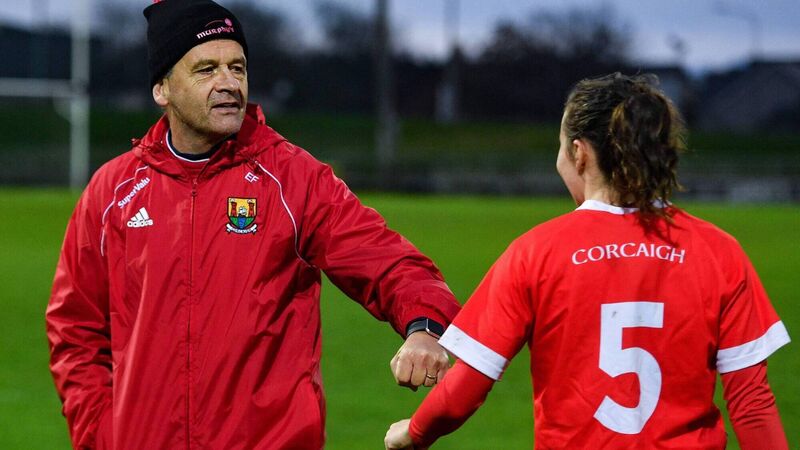Larry Ryan: Ladies football venue controversy far from perfect pitch for equality

REBEL WITH A CAUSE: Cork manager Ephie Fitzgerald, seen here with Melissa Duggan, is furious the All-Ireland ladies football semi-final has been moved, six days before the match, from Limerick to Dublin, as the Limerick hurlers are training at the original venue. Picture: Eóin Noonan/Sportsfile
You skim over many sentences when keeping track of the various gripes and grouses over fixture and venue arrangements for Gaelic games.








